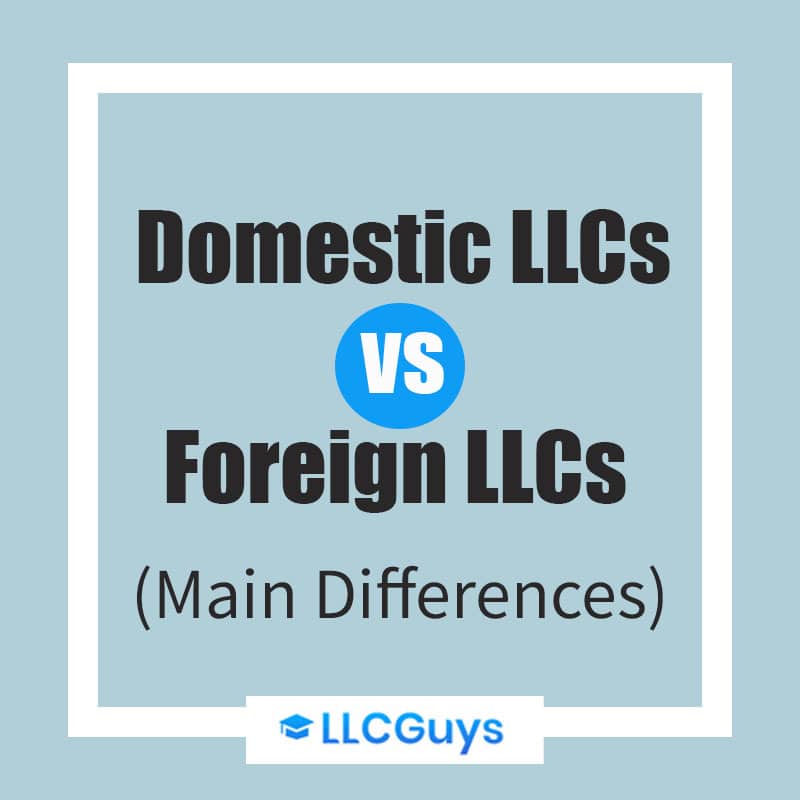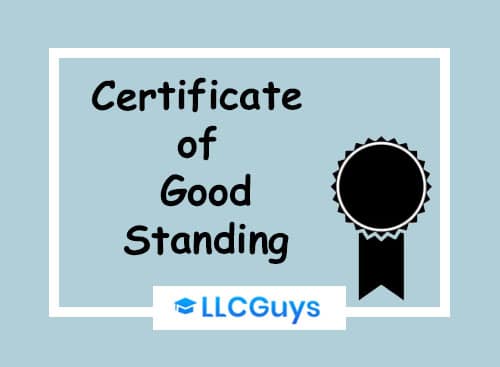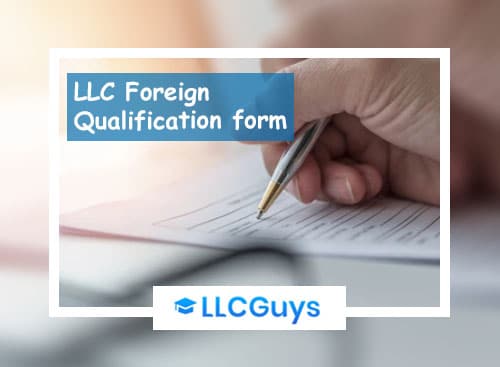Domestic LLCs vs. Foreign LLCs (Main Differences)
Jump to Best Foreign or Domestic LLC Formation Services in U.S.

For those that have just started the LLC formation journey, you may have heard the terms domestic and foreign LLCs floating about. When hearing the term ‘foreign’, you may think this is an LLC formed outside of the US, however this is not the case. A foreign LLC is an LLC that has still been created within the United States.
What is a Foreign LLC?
The difference between these two terms is that a foreign LLC is one that has been formed in one state, but has registered to do business in another state. For example, if you have filled out your Articles of Organization in Florida, but want to also conduct business in California, then you will also have register your business as a foreign LLC in the state of California. So, in this case, the term ‘foreign’ means that the LLC is foreign to the state of California.
What’s a Domestic LLC?
A domestic LLC on the other hand is one that was not only formed in its home state, but also does business in its home state. This means that the business is also subject to the laws and taxations of the state in which it was formed. If you form your LLC in one state, and also conduct your business in that state, then you have a domestic LLC.
If they want to do business in another state, then they would have to register to do this. If you do end up doing business in another state, you will be illegally transacting business.
3 Steps on How to Create a Foreign LLC
To file a foreign LLC in another state, you will have to fill out an Application for Certificate of Authority for Foreign Liability Company for the additional state that you are branching out to. The exact requirements for forming a foreign LLC in another state will vary, and depends on the state’s specific laws.
Step 1: Biz Name Search

The usual process includes conducting a business name search to see if your business name is also in use in the new state. If it is already in use, then you will need to use a fictitious name in its place. You will then need to assign your business a registered agent that is based in the new state. They will file and manage all the necessary documentation in that state.
Step 2: Certificate of Good Standing

You will then need to get a Certificate of Good Standing from your home state to show that while you were just operating as a domestic LLC, you have met all the necessary requirements for that state, such as filing annual reports and paying taxes on time.
Step 3: LLC Foreign Qualification Form

Lastly, you will have to file your LLC Foreign Qualification form. This will ask you lots of questions about your business, such as the address where your domestic LLC is located, the details of your registered agent, the names of other business members, and various others.
When Should I Register a “Foreign” LLC/Corporation?
You will need to register your LLC as a foreign LLC in another state if you are ‘doing business’ in that state but live in another. The term ‘doing business’ varies from state to state, so you will have to look at the requirements for each individual state. If you are unsure if you need to register or not, you could reach out to an attorney who will give you advice.
In general, the term ‘doing business’ means that you would like a physical presence in that other state, and you may also want to have employees in that state, sell directly from the state, and do banking in that state etc.
Need Help Forming a Domestic or a Foreign LLC?
There are several ways you can go about forming a domestic or a foreign LLC. Some people prefer to save the money and go through the whole process themselves, while others save themselves the time and hassle and get an outside provider to do all the hard work for them. Although this may cost a little more, you can rest assured the process will be conducted right and efficiently.
There are many companies out there that can help you through the process of forming domestic and foreign LLCs, but two of the best are Northwest Registered Agent and Zenbusiness. Let’s take a look at the pros and cons of both.
#1: Northwest Registered Agent
Pros
Cons
Here’s a full review of Northwest.
#2: ZenBusiness
Pros
Cons
Check out our full review of Zenbusiness here.
FAQs About Foreign & Domestic LLCs
If I have customers in another state, do I have to register as a foreign LLC?
This is where things can get a little confusing. If you are a domestic LLC but have customers that come from another state, you don’t have to create a foreign LLC.
How much does it cost to file a foreign LLC?
The cost of filing as a foreign LLC will vary greatly from state to state. On average though, the registration fee is around $186. Hawaii, Michigan and Missouri have the lowest rates at $50, whereas the most expensive registration fees are Texas and South Dakota, which charge $750.
You can, of course, always use incorporation services listed above which will save you a lot of time and money.
As a foreign LLC, will I still have to file an annual report?
In addition to the registration fees, as a foreign LLC, you will also likely to be required to pay to file na annual report every year, again, depending greatly on the state. This is just like domestic LLCs.
When should I form a foreign LLC?
You will need to form a foreign LLC when you want to expand your LLC and do business in a different state as well as the one that you formed your LLC in. This will then allow you to conduct business in that other state.
What happens if I don’t register as a foreign LLC in other state?
If you conduct business in other state or are planning on working in another state and fail to register as a foreign LLC, then you will more than likely be charged fines and penalties.





